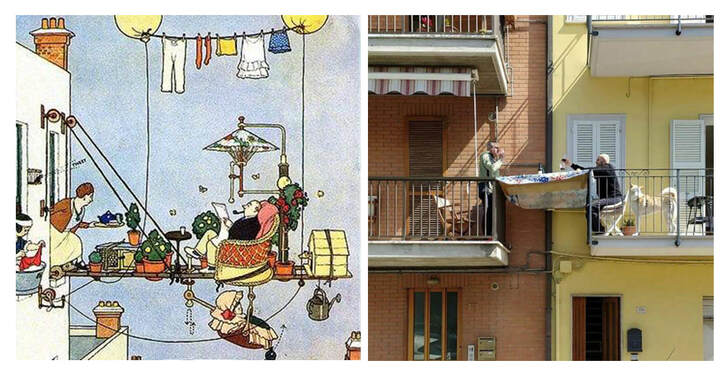For me, life in Madrid, in these 45 days of quarantine, has changed in two areas that we could effectively relate to resilience and participation.
An example of resilience is the transition of a life in which our frenetic professional rhythm makes us define ourselves many times as architects rather than as parents or simply citizens to a suspended life. For six weeks, my daily life has mutated to take care of my two children, 2 and 5 years old, with my partner the whole day, and also to hibernate my professional life by maintaining my online classes as a professor of architecture at the School of Madrid and pausing almost everything else (so I dedicate two or three hours a day to work, at most and with any luck). Within this time, thinking about my parents, for example, has made me put myself in a time of worry that I did not expect to arrive in 10 or 15 years. This staying in an interior has also made us resilient to be able to be with joy (and sometimes tension and exhaustion) at home with two children who need as children the relationship and connection with their equals, the exterior and nature (an impossible condition in Spain in these weeks). In all of this there is learning.
An example of participation is the only new project that has emerged in these weeks, a network of accompaniment and shared learning, through Telegram, that connects 80 people from all over the world, where we talk about our daily lives, our reflections and challenges around this crisis and the post-covid future. In this strange time where the healthy thing would surely be to stop and look within, it is inevitable to continue building networks. In this uncertain time where the healthy thing would be not to do, we have become somehow productive (thinking, talking, curating, connecting and assembling sounds) and we have articulated all this polyphonic conversation in a growing series of podcasts that make up a sound archive where architects, sociologists, healthcare personnel, anthropologists, lawyers, cultural managers, economists, teachers, activists, politicians, unemployed mates, retirees, journalists, social workers, etc. have thought together around issues such as urbanism and disease, future and ecology, globalization, feminisms, daily life, collective intelligence, confined childhood and adolescence, repression, etc. (https://www.ivoox.com/podcast-cor-on-collaboration_sq_f1873488_1.html). In all of this there is collective learning.
One of the main learnings in both affairs, a global meme: “we can't go back to normal because normal is the problem”.

